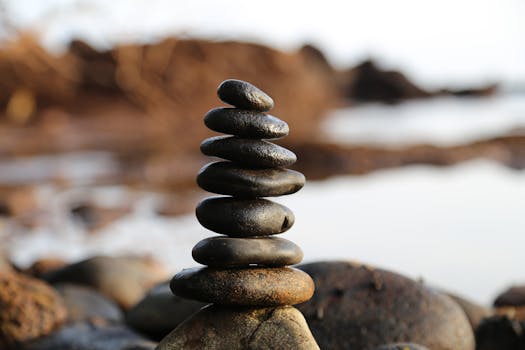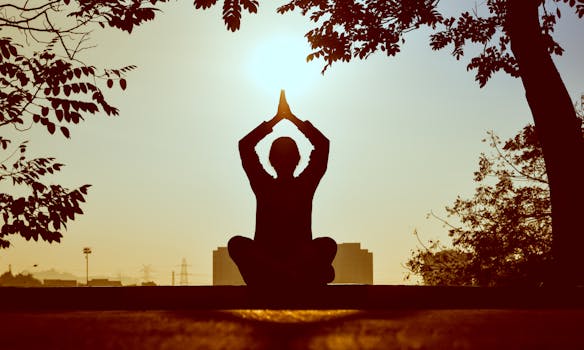
“
Mindfulness Practices for Stress Relief: A Comprehensive Guide
Mindfulness practices for stress relief are a powerful tool to reduce stress and anxiety, and improve overall well-being. Mindfulness is the practice of being present in the moment, paying attention to thoughts, feelings, and sensations without judgment. With regular mindfulness practice, you can develop greater self-awareness, emotional regulation, and resilience to stress.
What is Mindfulness?

Mindfulness is a state of consciousness characterized by awareness of the present moment, without judgment or attachment. It involves paying attention to thoughts, feelings, and sensations in the body and mind, without trying to change or react to them. Mindfulness is not just a technique, but a way of living that can be cultivated through practice and patience.
Benefits of Mindfulness for Stress Relief

The benefits of mindfulness for stress relief are numerous and well-documented. Some of the key benefits include:
- Reduced stress and anxiety
- Improved mood and emotional regulation
- Enhanced self-awareness and self-acceptance
- Increased resilience to stress and adversity
- Improved sleep quality
- Boosted immune system function
Mindfulness Practices for Stress Relief

There are many mindfulness practices that can help reduce stress and anxiety. Some of the most effective practices include:
- Meditation: sitting or walking meditation, focusing on the breath or a mantra
- Yoga: combining physical postures, breathing techniques, and meditation to promote relaxation and balance
- Body scan: lying down or sitting comfortably, bringing awareness to different parts of the body
- Mindful breathing: focusing on the breath, noticing its texture, temperature, and movement
- Mindful walking: paying attention to the sensation of each step, the movement of the legs and arms, and the rhythm of the breath
How to Practice Mindfulness for Stress Relief

To practice mindfulness for stress relief, follow these steps:
- Find a quiet and comfortable space to sit or lie down
- Close your eyes and take a few deep breaths
- Bring your attention to your breath, a mantra, or a physical sensation in the body
- When the mind wanders, gently bring it back to the chosen focus
- Practice for 10-20 minutes, ideally at the same time each day
Conclusion

Mindfulness practices for stress relief are a powerful tool to reduce stress and anxiety, and improve overall well-being. By incorporating mindfulness into your daily routine, you can develop greater self-awareness, emotional regulation, and resilience to stress. Remember to be patient and consistent, and to seek guidance from a qualified teacher or mentor if needed. For more insights on enhancing your lifestyle, check out Embracing Elegant Grace.
See more:
https://www.mindful.org/
https://www.headspace.com/
https://www.calm.com/






